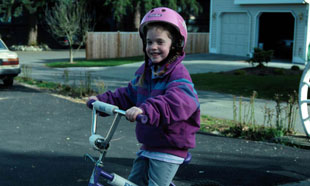All Brain Injury Survivors, Family and Friends are encouraged to attend our SUPPORT GROUP. We meet the THIRD Wednesday of every month from 5:30-7:30 PM at the National Rehabilitation Hospital, 102 Irving St, NW Washington, DC. Everybody is welcome. Email ellenwramsay@verizon.net with any questions.
Additional Resources
Serving Washington, D.C.

Please take a moment to check out this recovery guide authored by two of our Board Members. All proceeds from the purchase of this book go to the National Rehabilitation Hospital.
Managing Brain Injury: A Guide to Living Well with Brain Injury
Michael R. Yochelson, M.D., Penny Wolfe, Ph.D.
$16.95
Publication Date: 6/1/2010
Managing Brain Injury is a reader-friendly guide to help brain-injured patients, their families, and caregivers face the challenge of life following a brain injury. The book is part of a highly-regarded series of books on living with disability produced by National Rehabilitation Hospital.
Buy it Now
There will always be accidents, injuries, violence and the unpredictability of life. But one thing that can ease the journey is a book like Managing Brain Injury: A Guide to Living Well with Brain Injury, which offers patients and families practical, useful information and helps to make some sense out of what is often, especially initially, a senseless situation.
The brain injury experts at National Rehabilitation Hospital have drawn on their years of clinical experience to help patients and caregivers cope with the process of rehabilitation. It’s a realistic look at what patients and families can expect throughout the journey... Especially helpful are the personal stories of hope from men and women who have suffered brain injury, moved through the rehabilitative process and successfully rebuilt their lives. I applaud NRH for compiling such a critical resource.
– From the Foreword, Bob Woodruff, ABC News
Prevention

Preventing brain injury can spare individuals and their families from a life of hardship. Taking precautions against slipping and falling and sports and transportation accidents is a positive step.
- Preventing Falls in Seniors
http://www.cdc.gov/BrainInjuryInSeniors/ - Falls and Brain Injury
http://www.biausa.org/literatureretrieve.aspx?ID=43316
(Downloadable PDF format )
) - Student Athlete Traumatic Brain Injury Prevention
http://www.cdc.gov/traumaticbraininjury/basics.html
(Downloadable PDF format )
) - Heads Up Initiative for Coaches
http://www.cdc.gov/HEADSUP/ - Motorcycle Helmet Use and Safety
http://www.cdc.gov/motorvehiclesafety/mc/index.html
(Downloadable PDF format )
)
Fact Sheets And Further Information About Brain Injury

- Fact Sheet on Brain Injury
http://www.biausa.org/about-brain-injury.htm
(Downloadable PDF format )
) - Concussion Fact Sheet for Parents
http://www.cdc.gov/headsup/parents/index.html
(Downloadable PDF format )
) - Understanding Brain Injury – A Guide for Employers
(Downloadable PDF format )
)
Public Service Announcements

Short videos created as public service announcements provide more insight into TBI:
- Bully Film Spot
http://www.brain-injury.org/awareness/bully.mpg - Crying Mia Film Spot
http://www.servemarketing.org/share_html/share_bia_tv.htm
Legislation

The lasting results of a brain injury are internal – frequently leaving the person affected by brain injury with no outward signs of a disability. Hence it has been labeled “the invisible injury”.
Additional literature addressing that issue and advocating for higher levels of awareness:
- Resolution passed by the D.C. Council announcing March as Brain Injury Awareness Month
DC-COUNCIL-RESOLUTION-2010.pdf
(Downloadable PDF format )
) - Returning Service Members and Veterans:
tbi_invisible_injury_dod_2008.pdf
(Downloadable PDF format )
) - US Department of Education (DOE):
tbi_invisible_injury_doe_2008.pdf
(Downloadable PDF format )
) - US Department of Health and Human Services (DHHS):
tbi_invisible_injury_dhhs_2008.pdf
(Downloadable PDF format )
)
The United States Department of Health & Human Services, and the United States Department of Education have worked diligently to bring attention to traumatic brain injured individuals and the families who care for them. The TBI Act of 1996 authorizes DHHS agencies to conduct studies and establish innovative programs for TBI. Since the enactment of this act, the Center for Disease Control (CDC) and the National Institutes of Health (NIH) have conducted research to ameliorate the effects of TBI.
Other Brain Injury Associations

In addition to the national organization, the BIAA, there are two regional affiliates in the Washington metropolitan area that provide local resources and events. Additionally, a list of ALL affiliated brain injury associations can be found on the BIAA website:
- The Brain Injury Association of America
http://www.biausa.org/ - The Brain Injury Association of Maryland
http://www.biamd.org/ - The Brain Injury Association of Virginia
http://www.biav.net/
Local Resource Guide

There are many services and support resources available to individuals with brain injury and their families within the local Washington, DC area. This guide is under development and will be available on this web site in the future.
Brain Injury Association of Washington, D.C. (BIADC)






